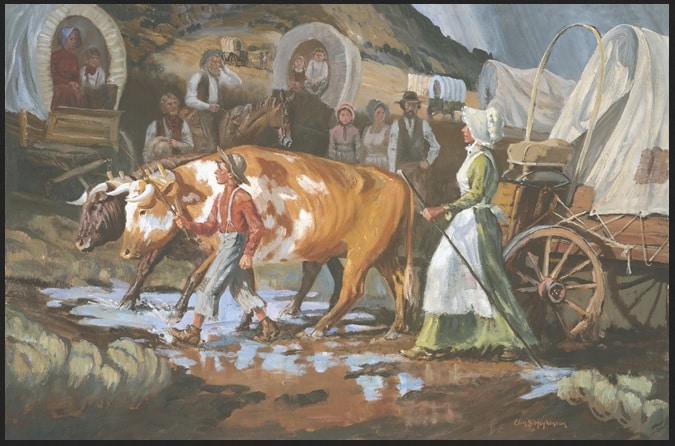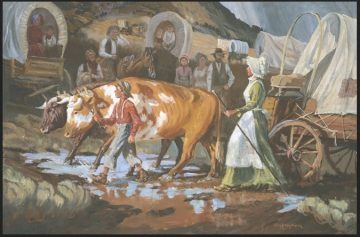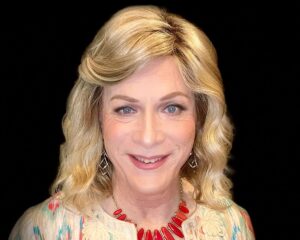What is the Priesthood?
For much of my life when I’ve had a lesson on the priesthood in Sunday School or Young Women’s, I’ve thought, “Well, no use listening to this. I’m not allowed to have the priesthood.” It can be challenging to find ways for girls to engage in this subject. They may be apathetic at best or hurt and angry. April posted some excellent ways to foster discussion in her YW’s lesson earlier this month. I would also add that in these lessons it is important to get women’s teachings in here as much as possible.
I have questions for the class in italics. My own musings in regular font and parts from the outline online in bold.
I think the first minute of this clip is great, particularly when Elder Oaks says, “Men are not the priesthood. The priesthood is something they exercise on behalf of the sons and daughters of God.”
So, what is the priesthood?
“The priesthood is the authority of God delegated to men on the earth to act in all things for the salvation of mankind (see Spencer W. Kimball, “The Example of Abraham,” Ensign, June 1975, 3)”
Elder Ballard says, “Brothers and sisters, the power by which the heavens and earth were and are created is the priesthood…Not only is the priesthood the power by which the heavens and the earth were created, but it is also the power the Savior used in His mortal ministry to perform miracles, to bless and heal the sick, to bring the dead to life, and, as our Father’s Only Begotten Son, to endure the unbearable pain of Gethsemane and Calvary—thus fulfilling the laws of justice with mercy and providing an infinite Atonement…”
I also like Elder Packer’s simple definition, “The priesthood is the eternal power of God.”
Why is ordination important?
Ordination is the way the Church (and God) authorizes an individual to act in God’s name.
How does authority figure in to this definition?
As Mormons, we believe that one must be authorized to act in God’s name (which is done through ordination through the laying on of hands to give or confer the priesthood to an individual).
Though an individual can have authority, one cannot have this spiritual capacity to use the power without being righteous. D&C 121:36-44 is worth going over here to show the importance of righteousness and humility in order for one to be able to call upon the power of God.
How do women figure into the priesthood?
President Hunter wrote, “As our Lord and Savior needed the women of his time…–even in his hour of humiliation, agony, and death–so we, his servants, all across the Church, need you, the women of the Church, to stand with us and for us” (“To the Women of the church,” Ensign, Nov 1992, pg. 26).
How can we stand with priesthood holders and for priesthood holders?
How can they stand with and for us?
Why is it important that both men and women do this for each other?
How does the priesthood work in your home?
Fathers and mothers should work together and equally to teach their children spiritual principles. A father performs ordinances like blessings and baptism because he has the authority through his priesthood office. Mothers help prepare children to receive rituals and ordinances (blessings, baptism, endowments, marriage) and can find other meaningful ways to participate in these sacred life events.
How do your parents work together to prepare you for ordinances like baptism? (I’d have another leader prepared to give an example just in case.)
Some of us live in homes where there is no priesthood holder. In those cases, does that mean we have no access to the power of God?
We can ask home teachers and other men in our ward, but I believe that God will not deny needed blessings to His daughters just because they are not given the authority of the priesthood.
There’s Mary Fielding Smith, the widow of Hyrum Smith and her trek to Utah, overcoming all sorts of obstacles through prayer and faith.
I had a friend who had a gravely-ill daughter and no worthy priesthood holder in the home. She knelt with her daughter and said, “I know that my Heavenly Father will not deny the prayers of a mother,” and proceeded to give her daughter a mother’s blessing.
Furthermore, as daughters of God, we are entitled to all the blessings of the Priesthood. President Julie Beck’s talk, “An Outpouring of Blessings,” outlines these blessings.
Divide into groups of two and look at President Beck’s talk. Which of these blessings have touched your life?
April recently did another excellent lesson using Daughters in My Kingdom Chapter 8: Blessings of the Priesthood for All. I think her section on Spiritual Gifts may be helpful in this lesson. The priesthood is a spiritual gift, but God bestows His power through other spiritual gifts.
What spiritual gifts do you think sound helpful?
What spiritual gifts do you have?
How can you use them to help other and to build the Kingdom of God?
I thought the following “Learn Together” in the YW and YM sections would be helpful:
-
- Invite the young women to read the section titled “Priesthood Quorums” on page 125 of True to the Faith. What are the similarities between how Aaronic Priesthood quorums and young women classes are organized? What are the differences? Help the young women see that the women of the Church are organized after the pattern of the priesthood (see Daughters in My Kingdom: The History and Work of Relief Society [2011], 138).
- Write on the board “God’s promise” and “Man’s promise.” Invite the young women to read Doctrine and Covenants 84:33–44 and look for the promise a man makes when he receives the priesthood and the promises Heavenly Father makes to him if he keeps his covenants. Ask them to write what they find on the board. Explain that these verses describe the oath and covenant of the priesthood. Ask the young women what impresses them about the oath and covenant of the priesthood. Ask why it is important for them to know what priesthood holders covenant to do.
- Divide the quorum into small groups. Assign each group one or more of the scriptures suggested in this outline, and ask them to look for the duties of priesthood holders in those scriptures. Invite them to search through the Gospel Art Book to find pictures of individuals performing priesthood duties, and ask them to explain how others are blessed through this service. Invite the young men to share their experiences fulfilling their priesthood duties and to describe how their services affects others.President Beck mentions in her talk about patriarchal blessings. It may be worthwhile for your class to do this exercise around setting goals using one’s patriarchal blessing.
Close with your testimony about the priesthood. And, I might also close with this scripture, particularly if your Young Women are struggling with this topic, “And truth is knowledge of things as they are, and as they were, and as they are to come” (D&C 93:24).
This lesson plan was originally written in 2013 as Women Lesson: What is the Priesthood?




![Come Follow Me: Doctrine and Covenants 84 “The Power of Godliness” Mary Fielding Smith and Joseph F. Smith Crossing the Plains Gospel Art Book 2009 no. 101 Mary Fielding Smith and Joseph F. Smith Crossing the Plains (Gospel Art Book [2009], no. 101)](https://exponentii.org/wp-content/uploads/2013/05/Mary-Fielding-Smith-and-Joseph-F.-Smith-Crossing-the-Plains-Gospel-Art-Book-2009-no.-101-300x198.jpg)



10 Responses
Ok, *really* wish you had been my YW teacher back in the day!!!!
Unfortunately, I’m willing to bet that in too many wards this lesson will devolve into discussions of modesty.
Orwell, I put up a Young Women lesson about priesthood last week and one of the optional activities in the original version at LDS.org was a discussion about “sustaining the Aaronic Priesthood” by being “guardians of virtue” for the young men. Obviously, I did not choose that option in my lesson plan but I am afraid you are right that many leaders will go that route. My lesson is here: https://exponentii.org/young-women-lesson-priesthood-and-priesthood-keys-how-do-i-honor-and-uphold-the-priesthood-plus-bonus-lesson-should-i-serve-a-mission/
Thank you for doing this. Since I teach two lessons a month in the YW, I may simply draw from these. I really am thankful, I’ve been dreading the priesthood month for awhile.
I’m wondering if it might also be helpful to explain the mechanics of priesthood blessings if you have girls who come from homes where they aren’t routine. I had no idea what to expect and so was afraid to ever ask for one, fear of the unknown.
[…] Church Ministry Source- Google Blog Search- Womens Ministry […]
Great lesson, Emily! I particularly loved this point:
Mothers help prepare children to receive rituals and ordinances (blessings, baptism, endowments, marriage) and can find other meaningful ways to participate in these sacred life events. How do your parents work together to prepare you for ordinances like baptism?
My daughter was baptized yesterday and it was important to both me and my husband that I have the opportunity to meaningfully participate in this event. Since my husband performed the baptism and confirmation, I gave the gospel talk that came before the baptism and organized the service, ensuring that female family members had important roles.
Today, when the bishop introduced my daughter as the newest official member of the ward, he said that she was baptized and confirmed by her father, and then added that her mother and both grandmothers also participated with talks and musical numbers. I thought it was nice that he recognized the contributions of the whole family to the baptism, male and female.
[…] fabulous reads on past Exponent Priesthood lesson plans are here, here, here and […]